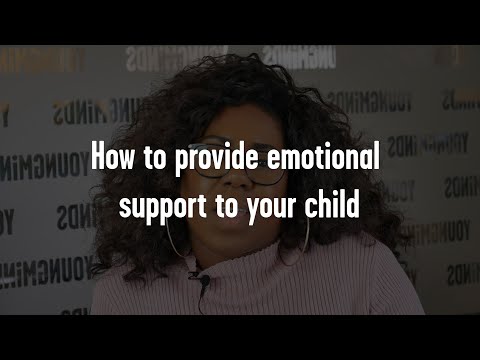Coping with your child's back to school anxiety
A comprehensive back to school guide

Back to school can be a challenging time for many children and parents. This guide aims to help you understand and manage back to school anxiety.
Understanding back to school anxiety
Back to school anxiety in kids is common but can be eased with the right tools and support. No matter how much they love learning, some children will experience anxiety when September rolls around. This can be for a lot of reasons – early mornings again, feeling like they might've fallen behind and are worried about catching up, or even just the anxiety of seeing so many people again.
Anxiety disorders, including back to school separation anxiety, are one of the most common mental health problems identified in children. Separation anxiety affects approximately 4.1% of children, highlighting the importance of knowing how to help a child with separation anxiety at school.
We spoke to an NHS England Educational Wellbeing Practitioner:
"Some children find it difficult to be apart from their parents or another carer. With separation anxiety this is often because of a fear that they will not see each other again. Sometimes the fear is that the child may be harmed in some way if their parent is not around, and other times it may be the opposite – the child may fear that their parent or carer may be harmed. This makes it difficult for these children to take part in activities and they may become withdrawn and ruminate.
Anxiety problems are the most common form of emotional and behavioural problems experienced by young people, and separation anxiety can affect up to one in five children."
How to spot back to school nerves
Children can't always tell us what they are feeling or understand why they are feeling different. We need to look out for it in their behaviour.
When children are feeling nervous about school, they may:
Complain of stomach aches or headaches
Appear more clingy than usual and struggle with separation anxiety
Be restless and fidgety
Get angry more quickly
Have difficulty falling or staying asleep
Not feel as hungry
Cry without obvious explanation
Struggle to concentrate
Lose confidence
If any of these sound familiar, then it's likely that your child is processing some worries about the upcoming change. This is completely normal, but it's also something that we shouldn't ignore.
What triggers school separation anxiety?
Anxiety disorder in children can be common after a long period off from school, but can also be caused by:
1. Stress:
Separation anxiety in children can come from stressful situations and changes. Examples could include the loss of a loved one, feeling behind with schoolwork, or being worried about a presentation at school.
2. Change in environment:
Changes to your child's surroundings, including moving school or home, stepping up to the next school year, or starting Secondary School can cause anxiety. These changes all heighten their anxiety and cause the challenge of them not wanting to leave your side.
3. Worried parents:
Separation anxiety in children can sometimes be triggered by your own stress or nerves. Your children can pick up on negativity and process it as their own. In essence, if your child notices that you're stressed, they're likely to become stressed themselves.
4. Routine changes:
It's normal for your child to experience feelings of worry after an extended break from school. Whether that be new obstacles presented after the long summer holidays, or through a long bout of illness, it can take a while for them to establish a usual routine again.
What age does separation anxiety start?
Separation anxiety in children can start from as early as 6 months and can usually last until they're around 3 years old, however, it can stick with children until much older. Knowing how to help a child with separation anxiety at school is really important, regardless of their age.
Possible sources of stress causing back to school anxiety in kids
Understanding the sources of potential stress can help you better support your child. Here are some common causes:
GCSEs and exams
GCSEs and exams can be a huge source of stress for your child. When it comes to it, it's important to develop coping strategies that help them deal with the stress that comes with their GCSE exams. That includes managing the stress of results day!
If your child is struggling with exam stress leading into their last years in school, make sure they have access to exam support. Even just a few tips or a good exam revision timetable can make all the difference in dealing with exam stress.
Bullying
Sadly, there is a chance that your child's back to school anxiety could be a result of bullying. If your child is experiencing bullying, it's important to recognise the signs of it. A lot of the signs can be similar to back to school anxiety, but particularly with cyberbullying it's good to monitor your child's time using their phone or computers to access social media. Excessive use of either, or irritability when using either can be a sign of cyberbullying.
If your child is worried about bullying, talk to them about it and try to come up with coping strategies to empower them against bullying. This can be deciding together to limit social media use or get support from a trusted teacher at school.
How to help your child cope with back to school anxiety
It's tempting to dismiss nerves about going back to school – "There's nothing to worry about. I promise you'll be fine." However confident we feel that this is going to be the case, sadly, these words aren't going to make your child feel better. Doing something is a great way of calming the mind. Here are our top tips for dealing with back to school stress and anxiety:
Get organised together:
Two weeks before school starts get your child involved in making a list of all the things they need for the return to school. This will help your child to feel more in control. Consider stationery, uniform, school shoes, bags, PE kits, lunchboxes and coats etc, and try putting together a back to school checklist. Get all the things from around the house that you've got already and figure out if you need to buy anything new.
Go on a school shopping day:
Arrange a shopping day for any last minute bits together and make it a treat. Allow them to choose a special piece of stationery or lunchbox. This will build some excitement around the start of school and will help your child to feel more confident. They know what they will be wearing and taking with them on the day they return.
Start school-style routine:
In the days immediately prior to school starting, adjust wake up times, breakfast and meal times to be in line with school. This way, starting school will not be such a big shock to the body.
Bring learning back into your routine:
If some of your normal school time practises such as daily spellings, reading, and times tables have dropped off in the holidays, then start to incorporate them into your day again. Not sure where to start? Try some of Explore Learning's free learning resources to get back in the swing of things.
Arrange playdates:
Meeting up with some friends in the same classes in September will help break down any nerves your child might have about seeing people they haven't been in touch with for a few weeks, or have not met before, in the case of a new school.
Do a practice school run:
This is especially important for a child who is starting a new school or facing a different routine than one they previously had. Mark a day in the calendar, set the alarm clock for the time they'll need to wake up, and get everything ready just as they would for a day of school. Put on school uniform (a great way of checking there's nothing they've suddenly grown out of) and do your complete journey. Walk up to the school and look around getting familiar again with the layout. Explain where you'll be dropping them off and picking them up. This rehearsal is a great way for both of you to see what went well and where you might need to build in more time.
Meet with a friend on the first morning:
If your child is anxious about going into school alone, then make a plan to meet with a friend on route so they have someone to talk to on the journey in. If this goes well, perhaps it's something you can build into your daily routine.
Listen to your child's worries:
If your child wants to talk about their worries, being able to listen to them and acknowledge their feelings will help them to feel more secure. Remember that often children just need space to talk about what's upsetting them – you don't need to try and fix everything. You can boost their confidence by acknowledging their feelings. Try phrases like “This is a new experience”, and “'I know it's a big change”.
Boost confidence:
Think about times when your child coped with change before – at nursery, trying out a new club, or at another school. Give them confidence that they can handle this new situation and that you're here for them at every step.
Look after yourself:
The start of the school year can be anxiety-inducing for parents, too. There's a lot to think about while reinstating routines, planning packed lunches, after-school clubs, and homework. Check out some suggested coping skills for stressed parents below. It's easy to unintentionally pass our stress on to our kids, so make time for yourself in all of this.
Parent’s back to school anxiety
It's important to remember that back to school anxiety doesn't just affect children - parents can experience it, too. Here are some tips to manage your parent anxiety:
1. Plan ahead:
Mentally preparing yourself for your child's return to school can help you feel less overwhelmed. Look ahead to upcoming challenges like reintroducing homework routines or planning after-school activities.
2. Speak to someone:
A problem shared is a problem halved. Consider speaking to other parents, friends, or even a professional if you're feeling particularly anxious.
3. Take care of yourself:
Ensure you're getting enough rest, eating well, and taking time for activities you enjoy. Your wellbeing is important too.
4. Stay informed:
Understanding more about children's mental health can help you feel more prepared to support your child. Consider reading books or reliable online resources about child psychology and anxiety.
5. Be kind to yourself:
Remember, it's normal to feel some anxiety about your child returning to school. Don't be too hard on yourself if you're finding it difficult.
Remember, by managing your own anxiety effectively, you'll be better equipped to support your child through their back-to-school transition.
Discover more positive ways to deal with life challenges with Si Martin, Director of charity Heads Above the Waves.

Additional strategies for providing emotional support for anxiety
There are a number of ways you can provide emotional support for your anxious child. Try:
Identify a safe place at school
Feelings of anxiety can lead to your child feeling lost, especially in a busy playground or hectic hallways. Speak to your child's teacher to discover a safe place they can visit when their feelings of unease spike, so that they can practise deep breathing to calm themselves down. This may be their school library or a quiet corner in their classroom.
Send notes or mementos for your child to read at school
Leave them little lunchtime notes to remind them that you love them. This will boost their confidence so they can tackle their school day head-on without you.
Talk about worries
Talk with your child about their anxiety and acknowledge their feelings. Avoid phrases like, "you don't need to worry about that," as they may feel like you're dismissing their concerns. Instead try to identify if there is anything specific that's making them feel anxious, and then consider if there are any changes that can be made to try and alleviate that concern.
Provide emotional support to your child
It's crucial to offer emotional support to your child when they're experiencing anxiety. Here's some expert advice on how to do this effectively:
Create a self-soothe box
Creating a trinket treasure box full of your child's comforts, for them to take to school can be a great coping mechanism for moments of distress. You can fill these boxes with things such as their favourite little teddy, a family photo, or perhaps more positive notes.
Establish a school gate goodbye routine
Some children experience separation anxiety at school drop-off. Give your child confidence with a reassuring send-off, whether it's a comedic salute, a well-known family phrase, or simply a cuddle and smile. This will help them establish a routine and feel comfortable when it's time for you to go.
Seek professional support
If your child's separation anxiety is severe, don't shy away from professional help. Cognitive behavioural therapy, play therapy, or counselling can treat separation anxiety disorder and can support your child in getting to the root of their problem.
How Explore Learning can help
At Explore Learning, we understand the challenges of back-to-school anxiety and are here to support both you and your child. Our expert tutors provide tailored learning experiences that not only boost academic confidence but also create a safe, supportive environment where your child can thrive. Whether through our tuition centres or online sessions, we're committed to easing your child's transition and building their confidence for the school year ahead.
Remember, with the right support and strategies, you can help your child navigate the transition back to school successfully. If you need any advice or support, please don't hesitate to pop into a centre or chat with our tutors online. We're proud to be with you throughout your family's school journey.
*
Cancel anytime
No joining fee
In centre or online
Memberships to suit you
Cancel anytime
No joining fee
In centre or online
Memberships to suit you
Cancel anytime
No joining fee
In centre or online
Memberships to suit you






